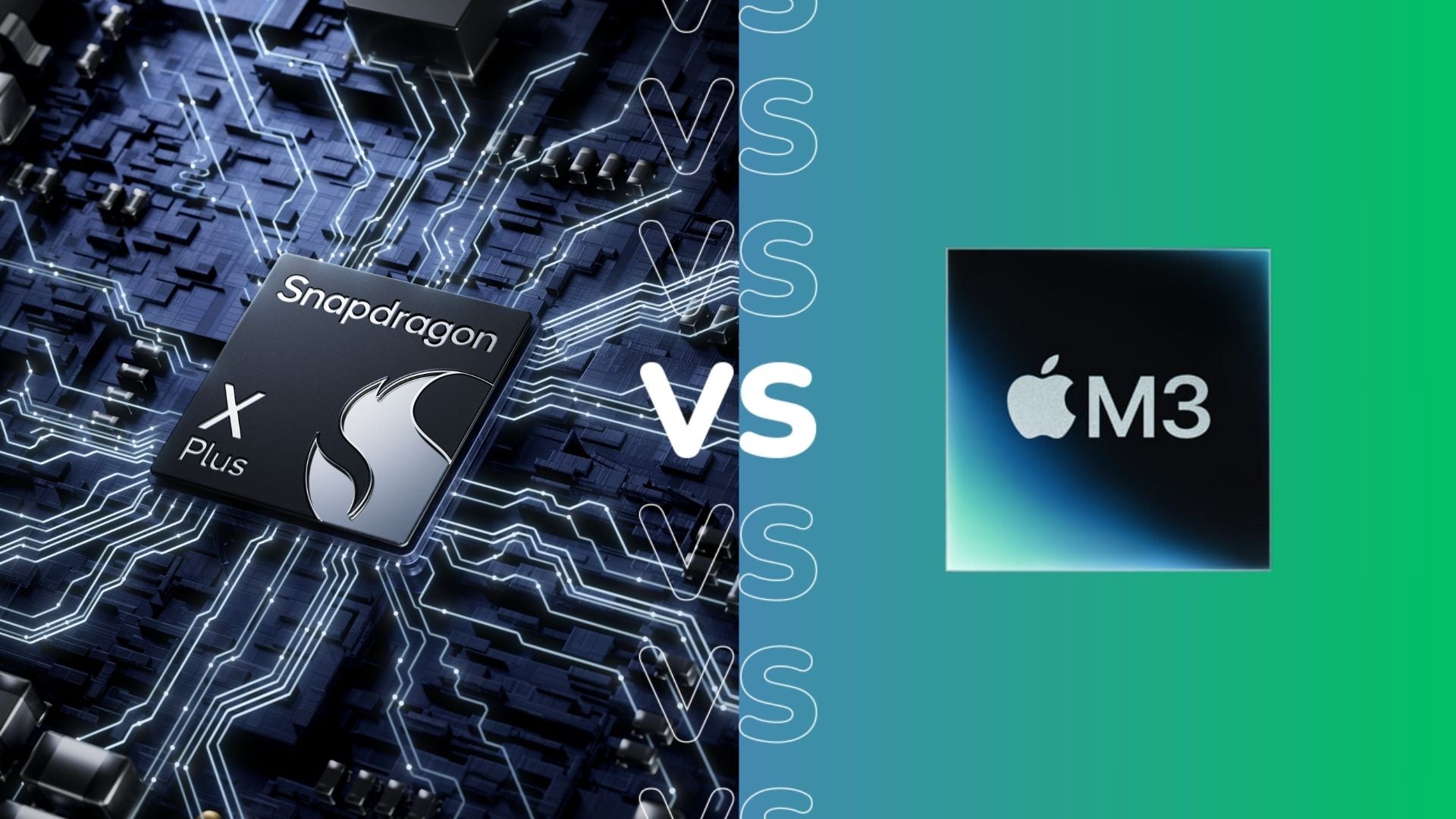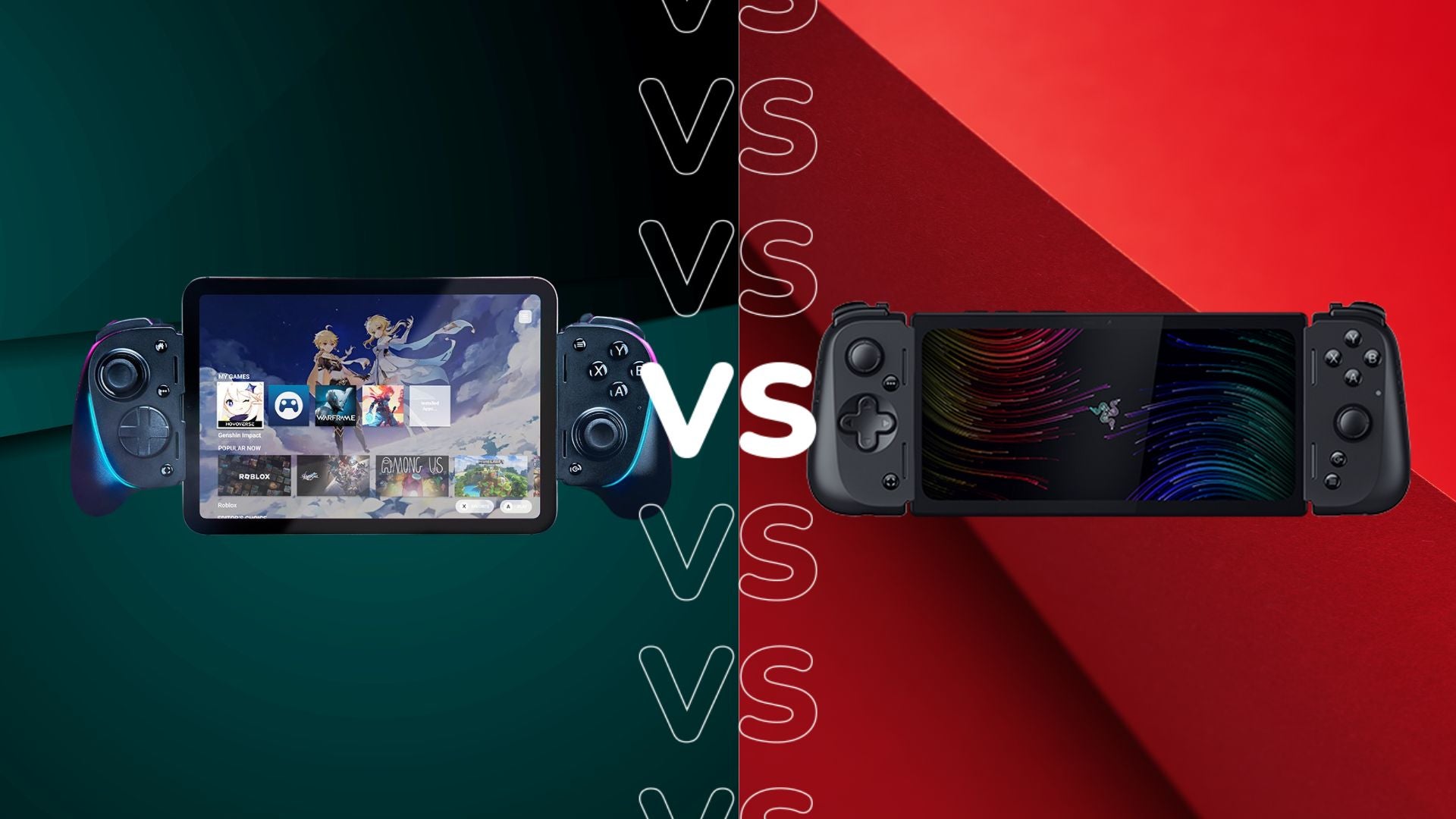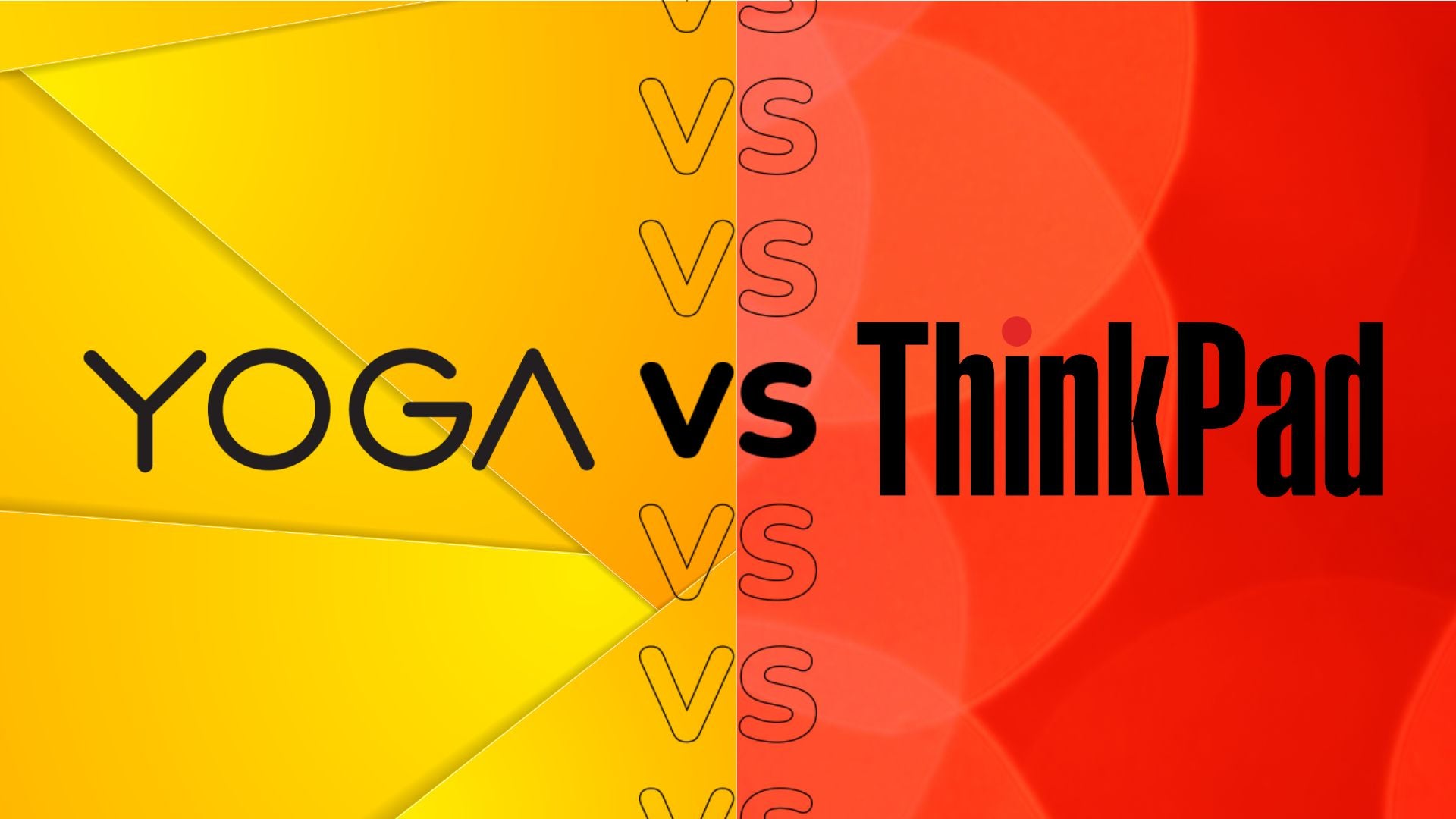Lenovo ThinkPad X1 Fold (2022) vs Lenovo ThinkPad X1 Fold (2020)
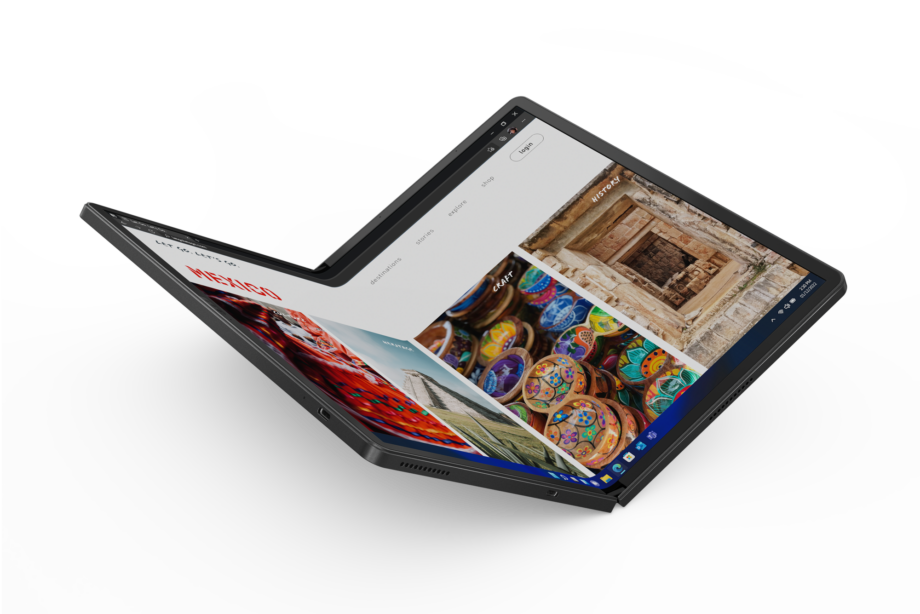
Lenovo launched the first foldable PC back in 2020, wowing the technology industry with its bendable screen which allowed you to use the device as both a tablet and laptop
Now in 2022, Lenovo has announced that it’s launching a new iteration of the foldable device: the Lenovo ThinkPad X1 Fold (2022). But what kind of upgrades can you expect from the foldale successor?
The screen is much bigger
One of the biggest issues with the previous Lenovo ThinkPad X1 Fold was its small 13.3-inch screen size. That’s not problematic when using a tablet, but was far too compact when folded down to mimic the form of a laptop.
Lenovo is rectifying that issue with the new model, bumping up the size to 16.3-inches. Lenovo claims it will have a 12-inch display when folded, which is a far better size than the previous model. The 12-inch folded screen may still be a little small compared to the likes of the MacBook Air, but it’s still perfectly usable as shown by the 12-inch Surface Laptop Go 2 screen.
The Lenovo ThinkPad X1 Fold is still smaller than the Asus Zenbook 17 Fold OLED (which has a 17-inch screen) but then you could argue the Lenovo is a better size for use as a tablet.
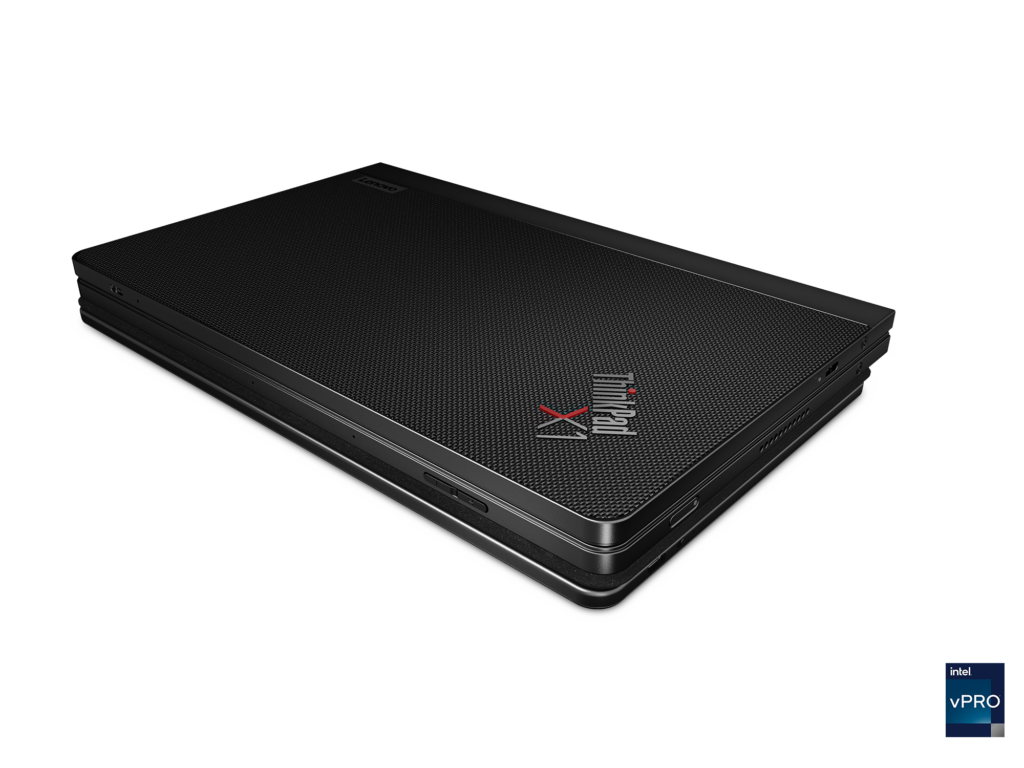
Thinner design
Lenovo has decided that it needs to cut the fat in order to improve the Lenovo ThinkPad X1 Fold. The original model was rather chunky, coming in at 11.5mm unfolded and 27.8mm folded.
The second generation of the foldable laptop measures in at just 8.6mm unfolded and 17.4mm folded. That’s a massive improvement, which should make it easier to hold the device and slot into a bag.
The new version will be heavier though, hitting the scales at 1.28kg opposed to the original’s 999g heft. But that’s no surprise since the new model has a larger screen. In fact, it’s impressive that Lenovo has been able to keep the weight reasonable despite adding 4 inches to the screen size.
Faster performance
The new Lenovo ThinkPad X1 Fold features a 12th Gen Intel Core processor, coming in both i5 and i7 flavours. You can also configure it with up to 32GB of RAM, giving it an impressive performance on paper.
The original model of the foldable featured a now outdated Intel Core i5-L16G7. Even back in 2020, the ThinkPad struggled to deliver a competitive performance, so we’re expecting the new 12th Gen chips to offer substantially faster speeds.
It’s important to remember that there’s no discrete GPU in the foldable, so don’t expect the new device to be able to edit the likes of photos and videos at a decent speed.
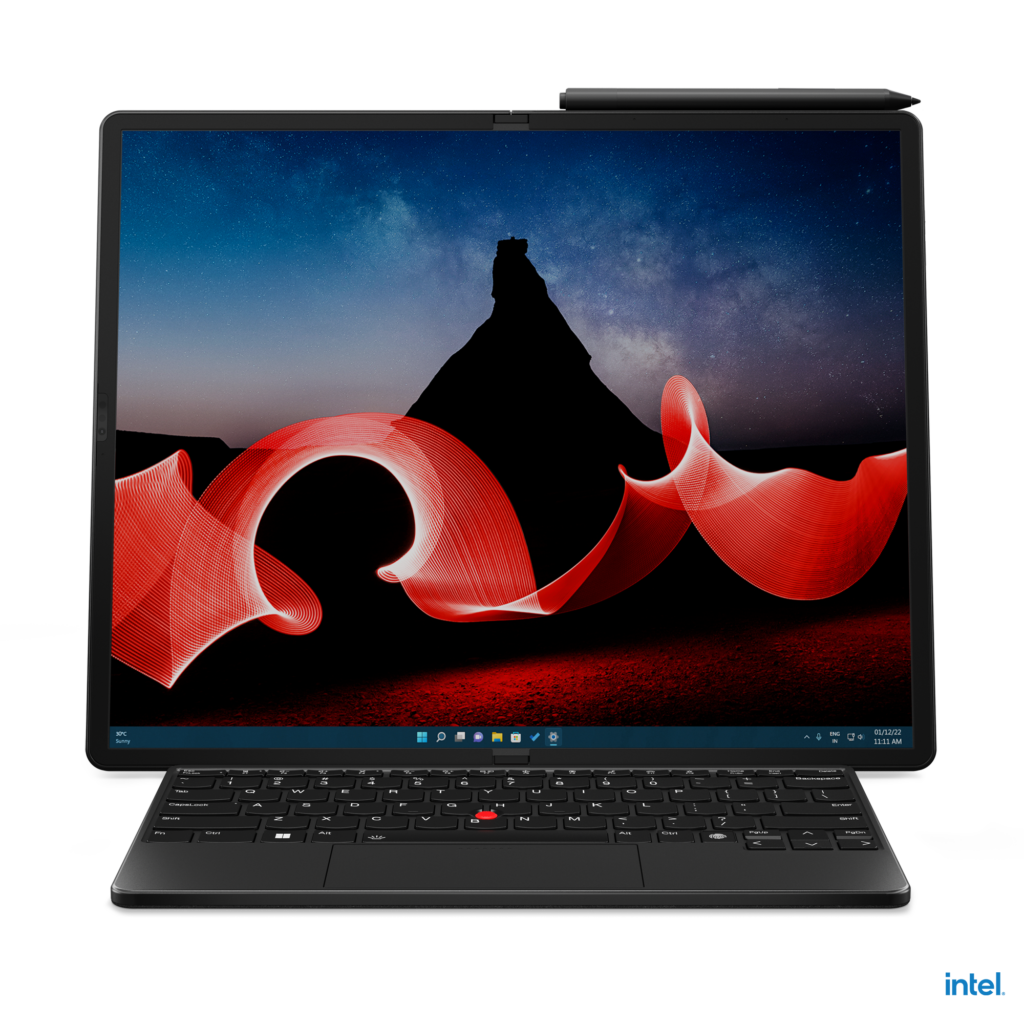
Improved security
The fingerprint sensor has become a popular feature on laptops, allowing you to sign in without having to remember a passcode. The original Lenovo ThinkPad X1 Fold lacked this feature, but Lenovo has made sure to include it this time.
Not only is there a fingerprint sensor located in the keyboard, but the webcam also supports Windows Hello for face recognition sign-ins. The added security features will no doubt please those who use their laptop on the go and work with sensitive information.
Speaking of features, the new model also retains 5G support, enabling you to use a SIM card for on-the-go connectivity.
Will run on Windows 11
The previous model shipped with Windows 10, which wasn’t the most friendly operating system for touch controls. Microsoft has made some refinements to Windows in order to improve the experience. Icons and menus are now slightly larger, while the taskbar is also more intuitive for tablets.
Windows 11 still pales in comparison to Android and iPadOS in this regard, but it’s a step in the right direction. You can of course upgrade to Windows 11 with the 2020 model, but it’s still good to know that the 2022 edition will ship with the software pre-installed.


